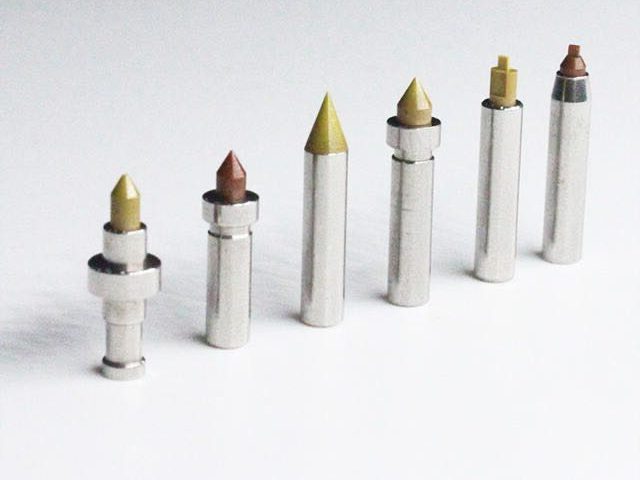Rubber Seals and Gaskets in the Electrical & Semiconductor Industry: A Comprehensive Guide
Introduction
The electrical and semiconductor industry relies on precision, efficiency, and durability. One of the critical components ensuring the reliability of electrical devices and semiconductor manufacturing is rubber seals and gaskets. These components play a crucial role in protecting sensitive equipment from environmental contaminants, vibrations, and electrical interference. This article explores the importance, applications, and benefits of rubber seals and gaskets in the electrical and semiconductor industry.
Importance of Rubber Seals and Gaskets in Electrical and Semiconductor Industry
Rubber seals and gaskets are essential in the electrical and semiconductor sectors due to their ability to provide insulation, prevent contamination, and enhance longevity. These components help maintain the integrity of electrical enclosures, circuit boards, and semiconductor equipment, ensuring that they function optimally.
Key Applications of Rubber Seals and Gaskets
1. Electrical Enclosures and Panels
Electrical enclosures house sensitive electronic components that must be protected from dust, moisture, and extreme temperatures. Rubber gaskets provide a secure seal, preventing ingress of contaminants and ensuring optimal performance.
2. Semiconductor Manufacturing Equipment
Semiconductor fabrication involves highly controlled environments. Rubber seals help maintain contamination-free conditions by sealing processing chambers, vacuum pumps, and cleanroom equipment.
3. Connectors and Cable Management
Rubber seals and gaskets are used in electrical connectors to prevent moisture ingress, dust accumulation, and electrical shorts. They also play a vital role in managing cable insulation and ensuring long-term performance.
4. High-Voltage Insulation
Electrical systems that handle high voltage require robust insulation to prevent electrical arcing and short circuits. Silicone and EPDM rubber gaskets provide excellent dielectric properties, enhancing the safety and efficiency of electrical installations.
5. Battery Storage and Power Systems
Lithium-ion battery enclosures and energy storage systems require effective sealing solutions to prevent exposure to humidity, gases, and thermal fluctuations. Rubber gaskets enhance battery life by providing secure insulation.
Benefits of Using Rubber Seals and Gaskets in Electrical and Semiconductor Industry
– Superior Electrical Insulation
Materials like silicone, EPDM, and fluorosilicone provide excellent electrical insulation, reducing the risk of short circuits and electrical failures.
– Enhanced Environmental Protection
Rubber gaskets prevent dust, moisture, and chemical exposure, ensuring the longevity of electrical components and semiconductor manufacturing equipment.
– Temperature and Chemical Resistance
Rubber materials used in electrical applications offer high resistance to extreme temperatures and chemicals, making them ideal for harsh industrial environments.
– Vibration and Shock Absorption
Gaskets and seals minimize vibrations and mechanical shocks, preventing damage to delicate semiconductor components and electronic assemblies.
Choosing the Right Rubber Material for Electrical and Semiconductor Applications
Selecting the appropriate rubber material for electrical and semiconductor applications depends on factors such as temperature resistance, dielectric strength, and environmental exposure.
Silicone Rubber: High-temperature resistance and excellent electrical insulation.
EPDM Rubber: Superior weather and ozone resistance, ideal for outdoor electrical applications.
Fluorosilicone: Resistant to harsh chemicals and fuels, suitable for semiconductor manufacturing.
Neoprene: Good oil resistance and flame-retardant properties.
Conclusion
Rubber seals and gaskets play an indispensable role in the electrical and semiconductor industry by providing insulation, environmental protection, and durability. By selecting the right materials and ensuring proper installation, these components can significantly enhance the reliability and efficiency of electrical systems and semiconductor manufacturing processes.

FAQs
Rubber gaskets prevent the ingress of moisture, dust, and contaminants, ensuring the longevity and safety of electrical components.
Silicone rubber is widely used for high-voltage insulation due to its excellent dielectric properties and temperature resistance.
Yes, materials like silicone and fluorosilicone offer excellent thermal resistance, making them ideal for both high and low-temperature environments.
Yes, rubber gaskets are used in cleanroom environments, vacuum systems, and semiconductor fabrication equipment to maintain contamination-free operations
Ensure your industrial systems operate at peak performance with the right solutions. Trust only the best with Rubber Seals and Gaskets!
